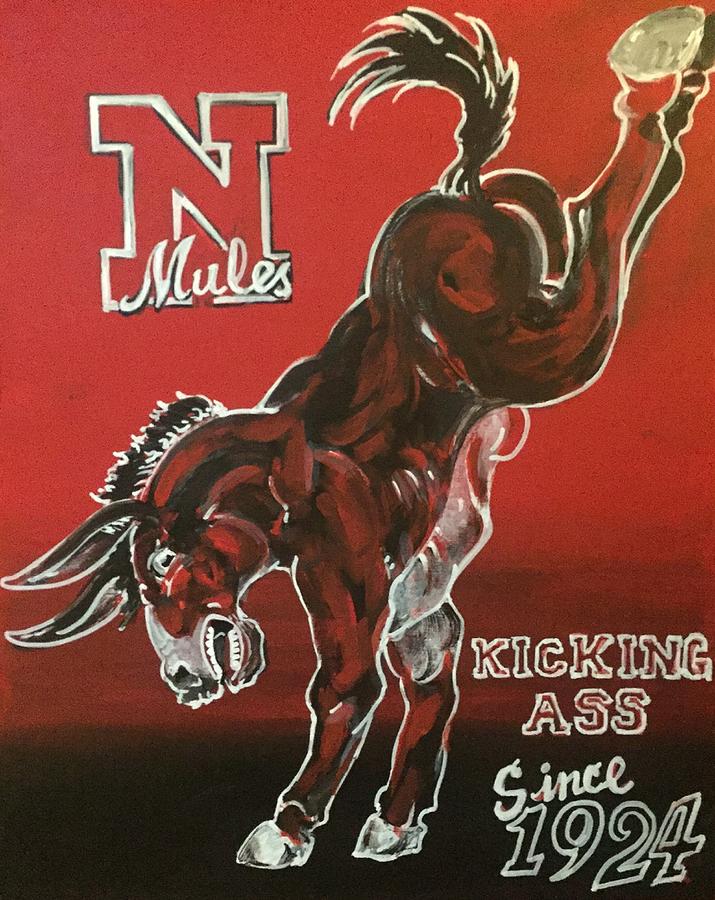
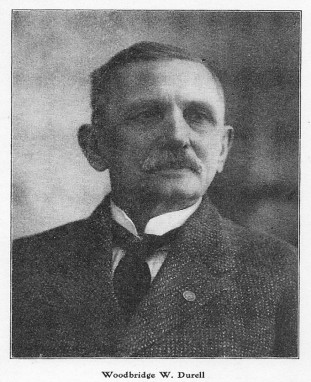 CIVIL WAR Prisoner of War
CIVIL WAR Prisoner of War
Oct 12, 1863, Battle of Sulphur Springs, VA
At age 22, he left Newmarket and enrolled in Company L., New Hampshire Battalion, First Regiment New England Volunteer Cavalry. Serving with distinction, he was promoted to Sergeant, and fought in twelve engagements from Fort Royal and Cedar Mountain, to Second Bull Run, Fredericksburg, Chancellorsville, Rapidan and Sulphur Springs. He was captured and imprisoned in Libby Prison; fortunately, he was one of the lucky ones to survive.
On the early morning of October 12, 1863, 200 men of his detachment acted as escort for the 6th Army Corps and defended a ford. By the time they were relieved at 9 pm, the Union Army had fallen back closely pressed by the enemy. Sergeant Durell, in command of the rear guard, while crossing a stream was fired upon and the command was given “To Trot”.
They travelled about a mile in complete darkness and rode through the enemy camp. Surrounded, eventually forty-five men were taken captive. Searched and all valuables taken, the men were later moved to Libby prison.
Durrell managed to secret some twelve dollars, which proved a Godsend to himself and comrades. That money saved them from starvation; they fed day after day on less than a pint of the coarsest meal (the corn and cobs ground together and issued unsifted). Forced to sleep on cold and frozen ground without blankets, of the captured forty-five men, only he and four others survived the harsh conditions of Libby Prison.
Released December 1862, he rejoined the Union Army. Like his older brother James, Woodbridge also saw battle at Fredericksburg where he was wounded . Once recovered he again entered the field and fought at Cold Harbor in June 1864, and was appointed Captain of Company C of this regiment on July 15th.
(Photo: Confederate cemetery, White Sulpher Springs)
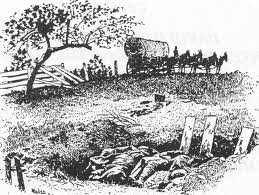 Captain Durell was a clerk when he enlisted 10 Dec 1861 at age 22 as a Private in Company L., 1st Cavalry Regiment, Rhode Island. He mustered in 27 Dec 1861 and was promoted to Full Sergeant 5 Aug 1862. Captured 12 Oct 1863 at Culpepper, VA, he was released 16 Dec 1864 in Charleston, SC. Transferred to Company L, 1st Cavalry New Hampshire on 7 Jan 1865. Mustered out 29 Mar 1865 in Concord, NH for time expired with a PO address of Newmarket.
Captain Durell was a clerk when he enlisted 10 Dec 1861 at age 22 as a Private in Company L., 1st Cavalry Regiment, Rhode Island. He mustered in 27 Dec 1861 and was promoted to Full Sergeant 5 Aug 1862. Captured 12 Oct 1863 at Culpepper, VA, he was released 16 Dec 1864 in Charleston, SC. Transferred to Company L, 1st Cavalry New Hampshire on 7 Jan 1865. Mustered out 29 Mar 1865 in Concord, NH for time expired with a PO address of Newmarket.
He was born to Newman and Sallie (Osborn) Durell. He married Sarah E. Smith on 26 Aug 1869 in Newmarket. The Town directory of 1872 lists him as a clerk for B.F.Haley’s, living in a house on Prescott Street. The Jan 1883 Pension Rolls indicates he received a monthly pension of $3 since 12 Dec 1870 due to an Abdominal injury he received while a Prisoner of War.
From a store clerk, like his brother James, he became a sucessfull dry goods merchant. He belonged to the Masons and was a member of Rising Star Lodge of Newmarket. He was 80 years old when he died on 11 Oct 1920 and was buried in Riverside cemetery.
Libby Prison — Richmond, Henrico Co., VA.
Libby Prison, in Richmond, Virginia, was one of the most notorious Confederate prisons in operation during the Civil War. The building was originally a tobacco warehouse, constructed by local merchant Fulton Libby in 1845. By 1862, it was a filthy, vermin-infested, dank prison, housing as many as twelve hundred Union soldiers in six rooms each no more than forty by one hundred feet. Many prisoners died there; those who survived suffered from poor health for the rest of their lives.
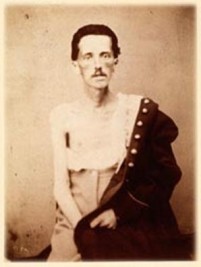
It received a notorious reputation in the North; became very crowded only after prisoner exchanges ceased in mid-1863. Inmates were notorious for their lack of cooperation among *themselves*, which made the jailers’ work much more difficult, which led to repressive measures. Many complaints by prisoners of starvation and that Sanitary Commission parcels of supplies (“CARE packages”) were redirected or plundered by corrupt CSA prison officials. Several major escape attempts proved successful. A series of Federal raids, forced the CSA government to move the prisoners to a new facility in Macon, GA in May 1864. After the surrender, Libby became a prison for Confederates and was much more crowded than before. The entire building was moved to Chicago in 1889 to become a War museum; only a few fragments of the walls remain there.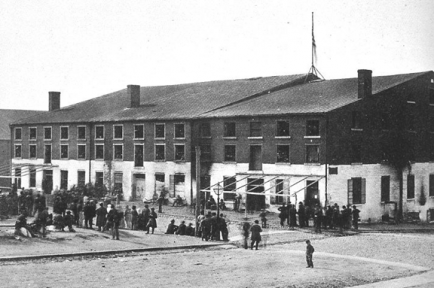
.
[Source: Michael K. Smith, CIVIL WAR MILITARY PRISONS & P.O.W. CAMPS, Dated: Feb. 12, 1995#002]